Caregiving in times of COVID-19. How stressful is it?
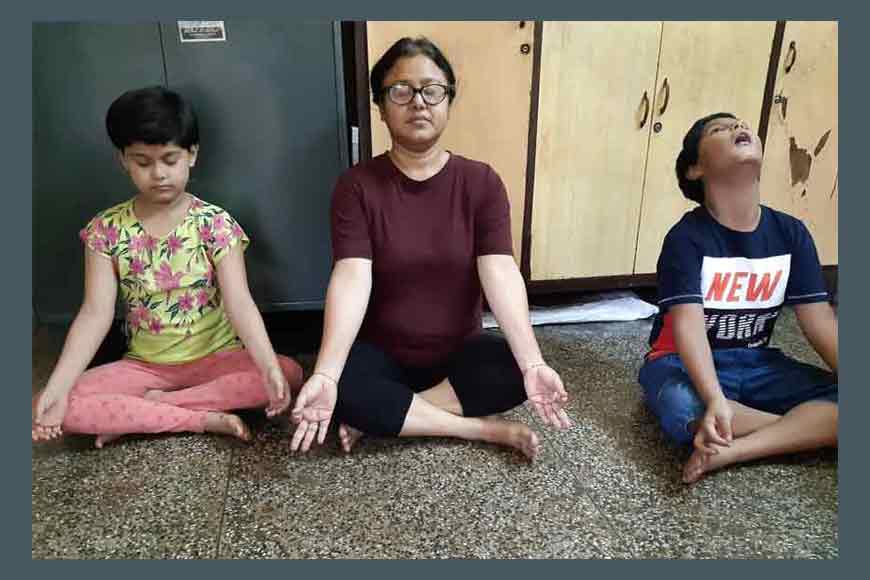
Kaustav Bakshi, Assistant Professor, Department of English, Jadavpur University
Amrita Roychowdhury, Social Entrepreneur and Founder, Transcendent Knowledge Society
Weary and exasperated with taking care of an adult, intellectually disabled daughter, the protagonist of Aparna Sen’s Paromita’r Ekdin (2000), Sanaka breaks down in an emotional outburst: “For 25 years am doing this… as if, I have nothing else in my life…no desires, nothing…no vacation, no entertainment…it’s like dying a miserable death every day within these four walls.” What appears extremely significant at the current moment, is the ageing Sanaka’s reference to the confinement “within these four walls” of the house with a periodically violent schizophrenic daughter who needs unwavering attention. The recent incident of a 78-year-old father killing his middle-aged intellectually disabled son during the corona lockdown shook the nation; activists, psychologists, social thinkers came together to analyze this incident, underlining the caregiver’s debilitating psychological condition on being stuck with a 45-yearold son, who was similar to Sanaka’s daughter in several ways.
This brings us to ponder what caregiving means, and the new challenges that caregivers are encountering, when they are literally “locked down” with their intellectually or physically disabled wards, ageing, ailing and terminally ill parents, spouses, and other relatives, and with dependents. One often forgets that the caregiver is also in need of empathy, love and is rightfully entitled to leaves, like any other worker. The emotional labor involved in caregiving is immense, but, often goes unnoticed and certainly unpaid, particularly if the caregiver is a family member, for they are bound by duty. Fearing social censure, they cannot even protest, no matter how fatigued they are. Caregiving does not only mean “looking after” the physical needs of someone; it also entails emotional support, sometimes even unconditional love.
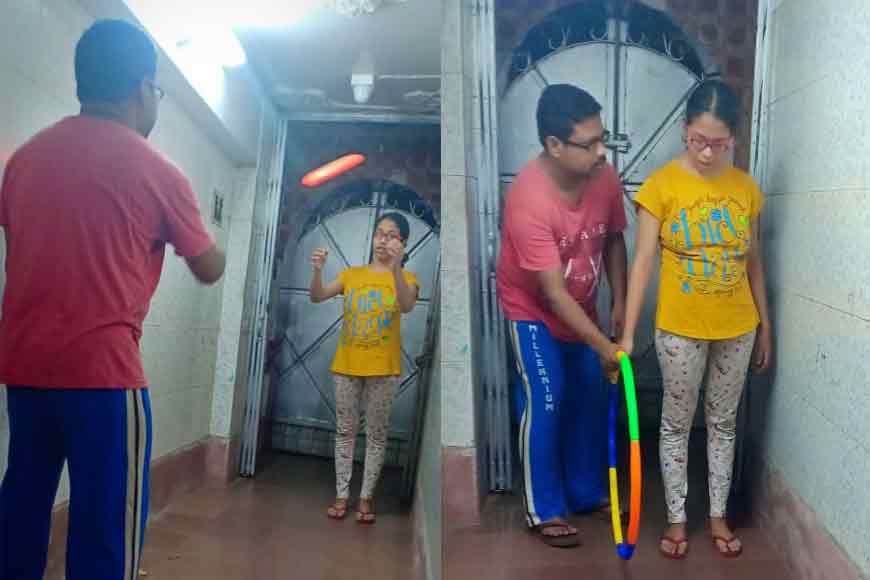
This in turn generates emotional distress in caregivers, an extreme manifestation of which was perhaps seen in the elderly caregiver strangling his son. In a special issue of Seminars in Oncology Nursing focusing on ‘Oncology Family Caregivers’ (2012), researchers point out that while emotional distress in caregivers is common, the effects of this distress, if unaddressed, often cause “changes in their immune system that can lead to flare-ups in auto-immune diseases, worsened glucose control in the body, and increased vulnerability to cardiovascular diseases.” Medical practitioners and therapists highly recommend taking periodical breaks – in fact, physical distancing – from the monotonous task of caregiving, notwithstanding how emotionally involved the caregiver may be with his /her dependent.
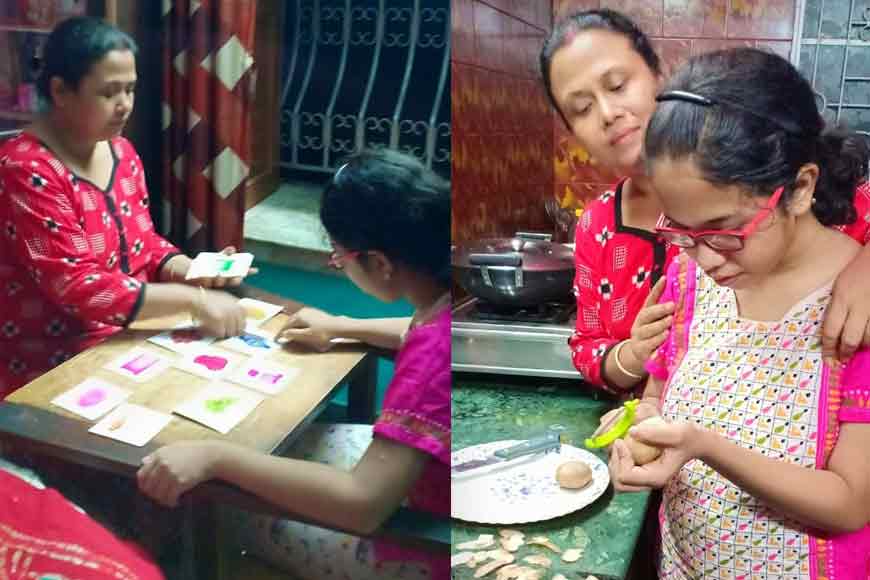
During this unprecedented lockdown, where several caregivers are confined within the four walls with their dependents all through the day, emotional distress, anxiety, resentment, and suicidal tendencies among caregivers would be invariably on the rise. Nilanjana Deb, an academician, taking care of her ageing parents, says: “Co-morbidities is a word that looms large in the caregiver’s consciousness these days. While neighbours would say that it is so convenient for my parents to have an unmarried daughter to look after them during the lockdown, one has to deal with the emotional impact of the shrinking of personal space, something my job and love for travel allowed me all these years.” While medical help in times of emergency is almost inaccessible at this moment with hospitals and doctors overburdened with corona patients, other forms of assistance, such as therapy, are also difficult to procure. Those, belonging to underprivileged sections of the society, are rendered even more helpless, having to worry about finances like never before. These additional concerns have thrust upon caregivers further mental stress, that gets manifested in emotional outbursts, abuses, and even, murder of the dependent.
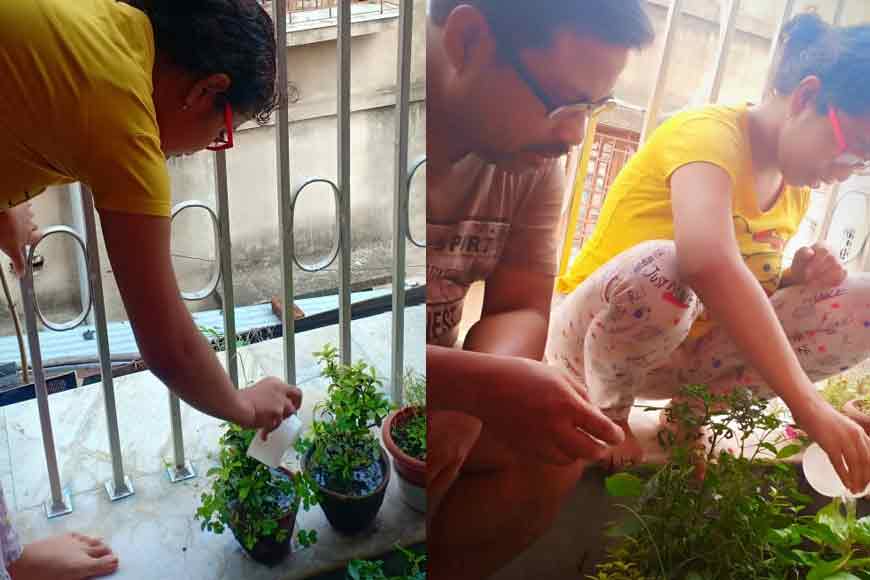
While caregivers, particularly in this quarantined situation, are often on the verge of a nervous breakdown, those, who are in dire need of care, are also finding it difficult to hold up. For many, particularly for the members of the LGBTQ+ community and persons with disability, their community is their emotional caregiver at times. For LGBTQ+ people, living with parents, who are often hostile to their sexual choices, the lockdown could be devastating; they seek support, care and compassion within the community, which, because of compulsory social distancing is now unavailable to them. Mona (name changed), who works with a Kolkata-based NGO, feels miserable in this lockdown situation, when she is stuck in the house with parents who are pestering her to getting married to a man. For Mona, her caregivers are her friends of the LGBTQ+ community, who have been with her through thick and thin. Talking to them on the phone or video-chatting with them is not helping, for, she is not being able to inhabit a free space away from home, away from the constant vigilance of homophobic parents. Her caregiving family is not her biological parents; but, the community at large.
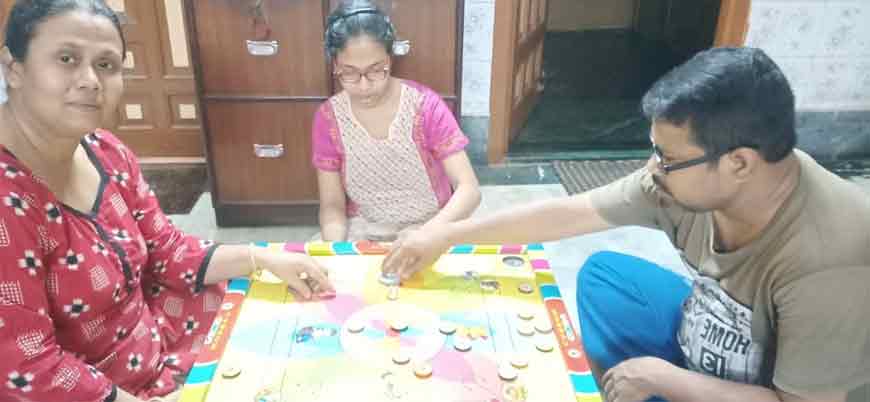
Ishan Chakravarty, academician and elocutionist, who is visually disabled and suffers from hearing impairment, has been deeply inconvenienced on being cut off from his community of disabled friends, because of the stay-at-home mandate. For him, talking to friends on the phone is not feasible, because of his hearing impairment; more importantly, as a deaf-blind person he is heavily dependent “on the experience of touch and tactile exploration”, which is not possible when the transmission of the corona virus is happening mostly through touch. For him, his mother is his caregiver at home; but, he draws his emotional sustenance through community socializing mostly.
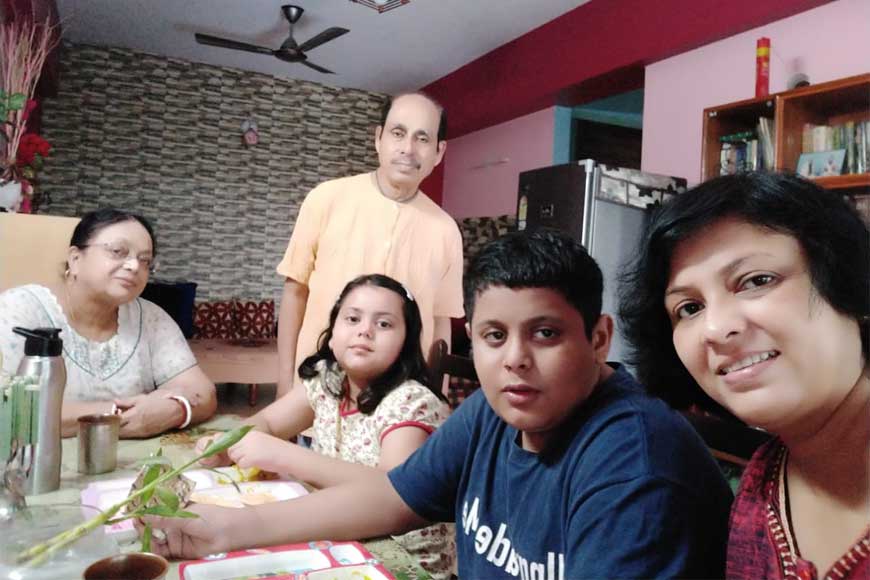
Caregivers and care-seekers are both in distress during this corona crisis. However, sometimes these little heartwarming stories pop up: Pawan Dhall of Varta Trust, which works for LGBTQ+ rights, is the sole caregiver of his aged mother who is suffering from glaucoma-induced blindness. Dhall said that despite occasional irritation of being locked up all day with an ailing mother, he is also reconnecting with her, learning to appreciate her expertise at storytelling, which, is filling up many empty hours. There is certainly some sunshine amid all the darkness; but it is a matter of concern, how empathetically caregivers can sustain themselves in their jobs, or how care-seekers can find sustenance, with the economy crashing amid the fear of a deadly virus.









